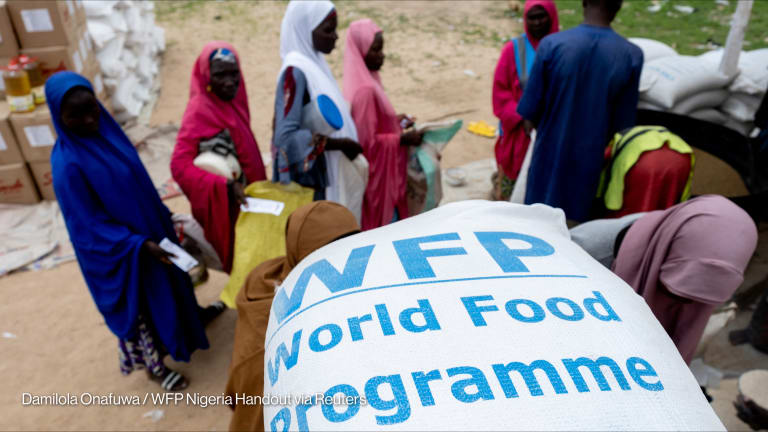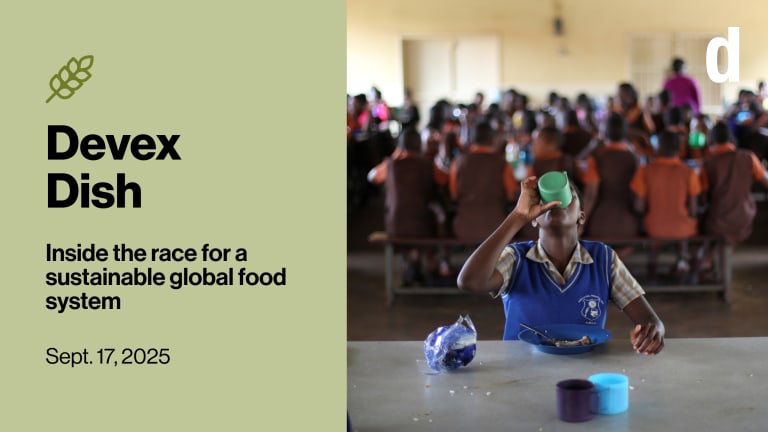
BRUSSELS — More than 113 million people across 53 countries experienced acute hunger last year, according to new figures released Tuesday. And the main factors — conflict and insecurity; climate change; and economic shocks — are not expected to abate in 2019.
The “Global Report on Food Crises,” prepared with 15 development and humanitarian agencies, found that 58 percent of those experiencing acute hunger were in Africa, 24 percent in the Middle East, and 13 percent in South and Southeast Asia.
It represents a slight improvement on last year’s report, which found that in 2017, some 124 million people in 51 countries faced acute hunger, requiring urgent action to protect livelihoods, and reduce food consumption gaps and acute malnutrition. The authors attributed the dip to climate-vulnerable countries experiencing less drought and flooding, and fewer temperature rises and erratic rains in 2018 — though they noted that 2019 has already seen dry weather in southern Africa and Cyclone Idai, which claimed hundreds of lives and destroyed livestock and crops just before harvest season.
This year’s report is the third from the Global Network Against Food Crises, launched in 2016 by the European Union, United Nations Food and Agriculture Organization, and World Food Programme. “In the old days, it was difficult for donors to understand or to agree on what was worse,” said Daniel Gustafson, deputy director-general at FAO. “Is Ethiopia worse than [what was then] Southern Sudan? And northeast Kenya, how bad is that? … There really wasn’t very good data and there wasn’t much agreement on how you compare across crises.”
At the report launch in Brussels on Tuesday, EU development commissioner Neven Mimica said it “informs actions on the ground where it matters the most.”
In 2018, the eight worst food crises according to the report — Yemen, the Democratic Republic of the Congo, Afghanistan, Ethiopia, Syria, Sudan, South Sudan, and northern Nigeria — accounted for two-thirds of those facing acute food insecurity. Globally, a further 143 million people were found to be on the cusp of acute hunger.
Yet 13 countries and territories do not feature in the report due to incomplete information available. Venezuela and North Korea were excluded, as well as Sri Lanka, Tanzania, and the Philippines.
“Even countries that are middle income, and often because they are middle income, don’t necessarily track these things very well,” Gustafson said. “So when you have a crisis you don’t have the methodology, the people, the training in place to assess that very well, and that is something that needs continuous work.”
“It’s great to have this report,” said Hélène Botreau, agriculture and food security advocacy officer at Oxfam France, which published a paper this week calling for more foreign aid and national public investment in agriculture, including a greater emphasis on supporting smallholder farmers, and better data on gender inequalities in the sector. “We have country-by-country analysis and forecasts for 2019, and we see that the forecasts for 2019 are not good. So for once, it would be good to have a concrete plan of action that goes beyond words,” she said.
Conflict and insecurity are expected to remain the primary cause of food security crises in 2019.
“Investments in conflict prevention and sustaining peace will save lives and livelihoods, reduce structural vulnerabilities and address the root causes of hunger,” the report’s authors wrote.
“The findings of this report clearly demonstrate the need for simultaneous action across the humanitarian-development nexus to deliver a hunger-free world in the 21st century.”
Search for articles
Most Read
- 1
- 2
- 3
- 4
- 5








